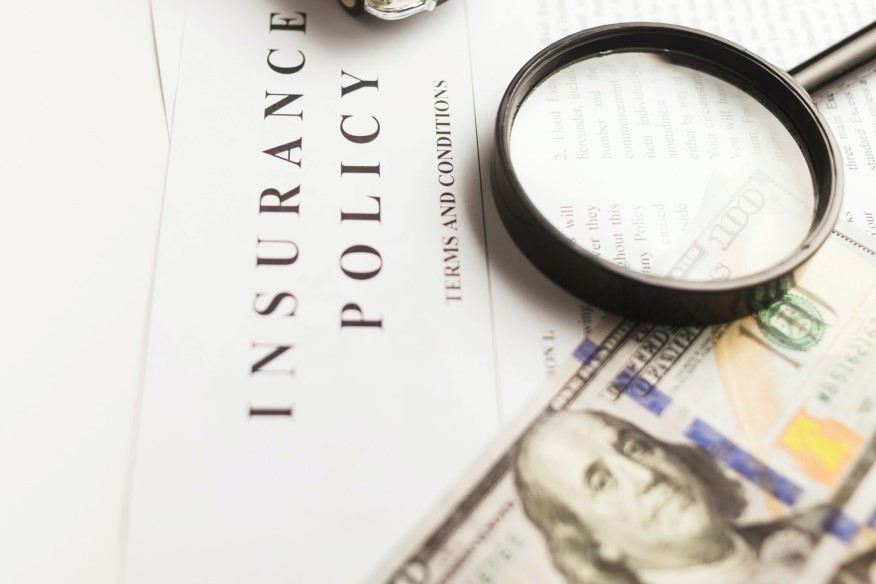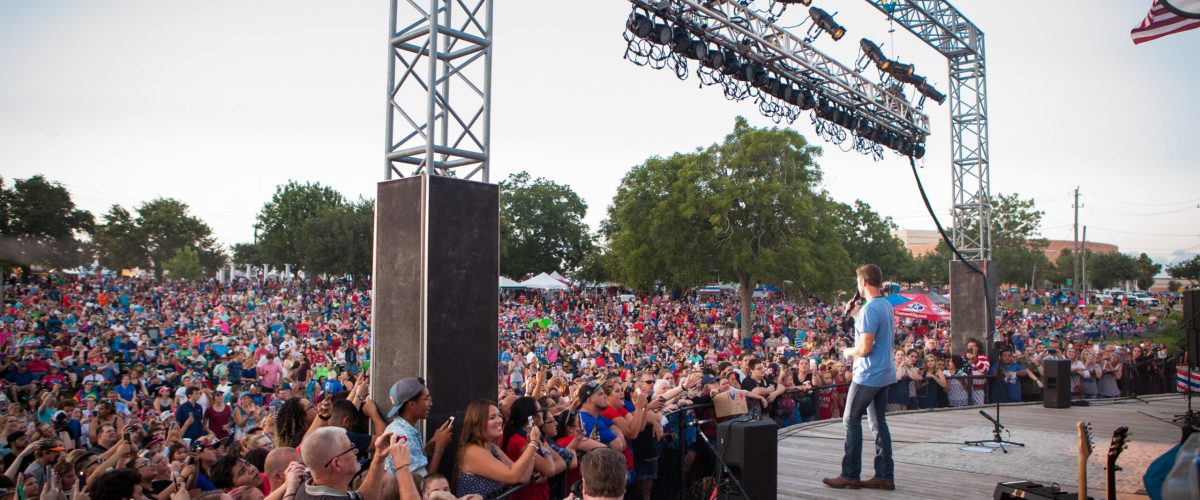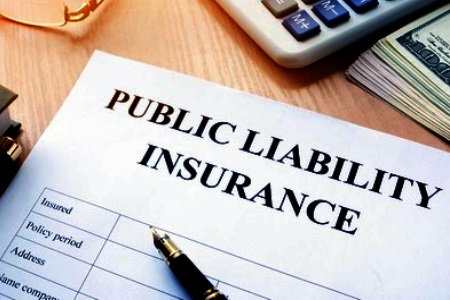Getting the right insurance for your outdoor music concert or festival is an important part of the planning for any live entertainment event. In Part One we discussed weather insurance. Concert and festival organizers buy weather insurance to protect themselves against bad weather incidents that reduce attendance and revenue. If you missed reading Part One, you can find it here: Outdoor Music Festival or Concert Insurance.
 While weather insurance is a critical piece for any outdoor event, there is a more important policy for any concert, festival, fair, wedding, private party, or corporate event to name a few. No one wants a successful event marred by an unexpected mishap. No matter how much you plan for safety, accidents can still happen.
While weather insurance is a critical piece for any outdoor event, there is a more important policy for any concert, festival, fair, wedding, private party, or corporate event to name a few. No one wants a successful event marred by an unexpected mishap. No matter how much you plan for safety, accidents can still happen.
-
-
- Someone could trip and fall
- A loader could drop an expensive piece of equipment
- A stage could partially or fully collapse
- A patron drinks too much and destroys an exhibitor’s display
- Artists trash a Green Room
- Fire ants or bees attack a hyperallergic person who suffers anaphylactic shock
- A fight breaks out and someone is injured
- The event is cancelled because the headliner backs out at the last minute
-

As you will see there a number of different types of event insurance coverages that concert promoters or festival organizers should consider, depending on the nature of their occasion. The fact that there are so many different types can be somewhat overwhelming for new event organizers. They include:
-
-
- Weather Insurance
- General Liability Insurance
- Liquor Liability Insurance
- Cancellation Insurance
- Third-Party Damage Insurance
- Hired/Non-Owned Auto Liability Insurance
- Worker’s Compensation Insurance/Employers’ Liability
- Terrorism Insurance
- Volunteer Accident Insurance
- Inland Marine Insurance
- Special Event Insurance
- Film Insurance
- Professional Indemnity Insurance
- Cyber Attack Special Insurance for online presences
-
Your total insurance premium for an event will depend on the size, nature, and duration of the event as well as the different coverages you choose. Big public gatherings that draw many thousands of people will have a minimum of five different insurance policies. Many have even more types. As you can imagine with such events, there will be claims. Spectator liability issues e.g., slip and fall, assault, molestation, false arrest, etc. are the most common types of claims at these very large events.
If you ask most concert, fair, festival organizers, or promoters, they will tell you that for an individual occasion the top three necessary insurance policies are general Liability (including host liquor liability), weather, and event cancellation insurance. General Liability Event Insurance for Outdoor Music Concerts, Fairs or Festivals
General Liability Event Insurance for Outdoor Music Concerts, Fairs or Festivals
The most basic and most important event insurance you will need is general liability insurance for your specific event. The International Risk Management Institute, Inc. (irmi.com) defines a commercial general liability (CGL) Policy as
a standard insurance policy issued to business organizations to protect them against liability claims for bodily injury (BI) and property damage (PD) arising out of premises, operations, products, and completed operations; and advertising and personal injury (PI) liability. The CGL policy was introduced in 1986 and replaced the “comprehensive” general liability policy.
A good policy will protect you and the other additionally insured parties involved against most things that are out of your control during an affair. They include policy covered acts by all those involved with putting on the concert, festival, fair, wedding reception, corporate event, etc. Make sure you understand what is and what isn’t covered before you buy it. There are event insurance companies that specialize in certain types of events, e.g. weddings and wedding receptions. Their policies are specifically geared to these types of events. Certain types of private events, e.g., weddings, Quinceañeras, birthday parties, etc. may be able to get a one-day event umbrella policy that covers all sorts of potential claims. Public events are typically not eligible for such a policy.
Having a general liability event policy in most cases is no longer an option for event organizers. Most venues, including clubs, theaters, parks, trade shows, wedding venues, etc. will require you to have insurance for your event and will also require you to name them as additionally insured on your policy. If you are the event planner or organizer, you will probably ask all the vendors or subcontractors to provide their own general liability policy naming you as additionally insured. In addition to the designation as additionally insured, you will also want to include an indemnification clause in you contract with such third parties.
 Host Liquor Liability Insurance Versus Liquor Liability Insurance
Host Liquor Liability Insurance Versus Liquor Liability Insurance
If liquor is provided at an event, the outdoor concert or festival organizer will also want Host Liquor Liability added as part of their event general liability policy. This coverage protects organizations that serve or sell alcohol at their events. Host Liquor liability insurance will offer coverage for bodily injury or property damage caused by an intoxicated person who was served or sold alcohol by the policy holder.
Liquor liability insurance is for commercial businesses that manufacture, serve, or sell alcohol. Examples include permanent entertainment venues, bars, restaurants, nightclubs, theaters, liquor stores, breweries, grocery stores, wineries, convenience stores, etc.
Dram Shop Laws Increase Exposure to Liquor Liability
At last count 44 states and the District of Columbia have Dram Shop laws. Since they are enacted at the state level, the scope of the laws varies widely depending on the state involved. These laws hold organizations that sell or serve liquor liable for the actions of intoxicated people who were served at the business or event. Their one commonality, according to FindLaw is that all Dram Shop laws use the “application of the obvious intoxication test where the server knew or should have known that the patron was so intoxicated that more alcohol would cause danger to himself or others.” Entertainment venues that are in business of serving alcohol should be familiar with their state dram shop laws.
Why is Host Liquor Liability Insurance Protection Necessary?
IRMI describes host liquor liability as: “liability for bodily injury or property damage arising out of the serving or distribution of alcoholic beverages by a party not engaged in this activity as a business enterprise.”
While private functions like festivals or corporate parties don’t fall under dram shop laws, hosts can be sued under social host liability laws. These laws are like dram shop laws in that the organizers of these events can be liable for property damage, injuries or deaths caused by their negligence in serving liquor and/or preventing an impaired guest from driving.
Put that into context. Of the 6,000 people at your event, what is the likelihood of someone being alcohol impaired when they leave your event? Easy to see why Host Liquor Liability insurance is a necessary part of your outdoor concert, fair or festival needs.
Unlike Liquor Liability Insurance, host liquor liability coverage can be included as part of a general liability insurance policy. Some insurance companies make it part of the basic liability package. For others it’s a separate add on coverage. Either way, having liquor at your event will significantly increase your insurance premium. Host liquor liability insurance is not written as part of the liability coverage for sporting events.
Large concerts and music festival are difficult to insure because of the consumption of alcohol and drugs at these events. Companies do not want to underwrite policies for events characterized by drunk, partying young adults and teenagers. Insurance companies are even more wary after the fatalities and injuries at the Astroworld Festival in Houston, Texas.
Why You Should Consider an Established Entertainment Agency to Produce and Manage Your Festival or Concert
Did you know that underwriters consider the festival chain of command when considering whether or not to insure a festival or concert. Safety is a very important issue for underwriters. They want to know that evacuation plans, a communications strategy and one decision maker is in place when dealing with either weather or other serious incidents that could happen at such events.
Peter Tempkins, managing director of entertainment for HUB International explains it this way. “The most important thing to me is not who owns the festival, but who is running the festival. I want to know who the actual boots on the ground are, who is really doing everything,” he said. “I know a lot of production people who do festivals. They’re going to do their job the same way every time, no matter who owns it.”
Unless you have lots of experience and a reputation for holding safe, quality events, you should think about bringing in a reputable entertainment agency to handle all the arrangements for it. Otherwise, you may find it difficult to get affordable liability insurance coverage.
 Cancellation Insurance for Concerts, Fairs, and Festivals
Cancellation Insurance for Concerts, Fairs, and Festivals
One of the most devastating things that can happen to a concert or festival is the need to cancel the event all together. There are a number of things that could happen that could cause an event to be cancelled or shut down after being started. Think about it. What happens if:
-
-
- The generator quits and won’t restart, and you are dependent on it for sound and lights?
- A bad and prolonged thunderstorm with lightning is heading straight towards your event?
- The headliner doesn’t show up the day of the event?
- The main highway to your site is shut down for some reason?
- A terrorism incident takes place near you and the authority call for a lock down?
- The public health department declares a public health emergency requiring cancellation of public events?
-
We all know what the Covid pandemic did to cause cancellation or postponement of live entertainment events. Event cancellation insurance is another thing to consider for your events. It can help you handle deposits you’ve already paid, refunding money paid by patrons for tickets, or other expenses or lost revenue. It’s all about how much risk you are willing to assume.
Concert – Festival Insurance: Some insurance companies package a few different types of insurance coverages together to create protection for concert performers, promoters, event organizers, and venues. They usually combine general liability, host liquor liability, cancellation insurance and possibly other coverages such as company owned auto liability and third party property damage.
The Many Other Types of Event Insurance for Concerts, Festivals, Weddings, Corporate Events and Private Parties.
Terrorism Insurance:
A sign of our times is terrorism insurance for your event. There are generally three types available. They include:
-
-
- Limited Terrorism covers forced cancellation because of a terrorism incident within a specific radius of the event over a specific time period.
- Full Terrorism covers forced cancellation because of a terrorism act without limits
- Political Violence covers war, rebellion and other civil disturbances like strikes, riots and civil commotion.
-
Professional Liability Insurance:
People often refer to this kind of policy as “errors and omissions” insurance. This protects policy holders from claims that they acted negligently resulting in lost money or profits. Examples include errors in the contracts with artists or subcontractors, failure to hire necessary local production, providing the wrong information to those involved with the event. Any of these that result in lost money or decreased revenue could result in a lawsuit. That could be a major financial burden for those planning and producing events
Workers’ Compensation Insurance:
With the exception of Texas, states require you to purchase protection for part- or full-time employees who work the event. Workers’ Comp workers and employers are protected from the lost wages and medical costs resulting from a work-related injury.
Volunteer Accident Insurance:
Because volunteers play a vital role in putting on a fair or festival, organizers need to think about supporting them by providing them insurance coverage for injuries occurring while working for the event. State laws vary on whether volunteers can be part of a worker’s compensation coverage. Some states, including Texas don’t permit coverage on volunteers unless they work for government or emergency services. Other states allow volunteers to be covered at the option of their employer.
While a general liability policy may cover coverage of medical bills, the coverage limit is typically very small at about $5,000. That may require the injured volunteer to sue blaming their injury on the event organization or one of its employees to get restitution for their medical expenses. A better way to provide medical and other benefits for volunteers is to buy a special policy know as “Volunteer Accident Insurance.” This kind of policy normally provides a range of benefits, including accident medical expenses, accidental death or dismemberment, and even disability payments.
Auto Liability Insurance:
Depending on whether the vehicles used for the event are owned by the business, rented, or are the personal vehicles of people working the event, you will need either a commercial auto policy (owned) or a hired/non-owned liability insurance policy for the vehicles used to move equipment or transport people associated with the event.
Inland Marine Insurance:
This type of insurance covers your own property or equipment that is transportable or movable over land, delivers information or is stored away from your business premise. It’s known as a “floater” policy because it’s attached to the equipment or property no matter where its located. The name “inland marine insurance” can be confusing. Despite the word “marine,” this coverage has nothing to do with the ocean or waterways. Many businesses think that their commercial auto insurance will pay for property when damaged during transit or when being stored. If so, there are limits. In the entertainment industry when a lot of expensive equipment is transported by truck or trailer, Inland Marine Insurance is absolutely worth considering. Think about a band towing a trailer with all of their equipment contained within it. They could be surprised when they learn that the trailer and equipment is not covered by their property insurance.
Special Coverages:
Film insurance, cyber security insurance, etc. What happens if your drone crashes into a lake or your photographer’s camera is stolen with all your video and photos for the event with them? That’s right, there’s event insurance to fit this any many other niche needs, including someone taking down or hacking your event website.
Summing Up Insurance Needs for Outdoor Concerts or Festivals

Remember that safety and security should always be top of mind for outdoor music concerts and other events. Having the right event production and operations partner, will contribute is so many ways to your peace of mind.


 Host Liquor Liability Insurance Versus Liquor Liability Insurance
Host Liquor Liability Insurance Versus Liquor Liability Insurance Cancellation Insurance for Concerts, Fairs, and Festivals
Cancellation Insurance for Concerts, Fairs, and Festivals


